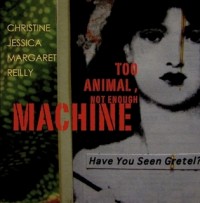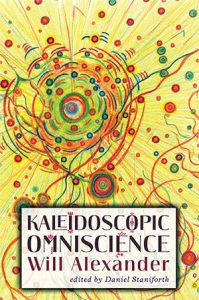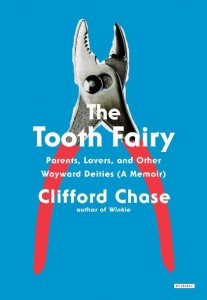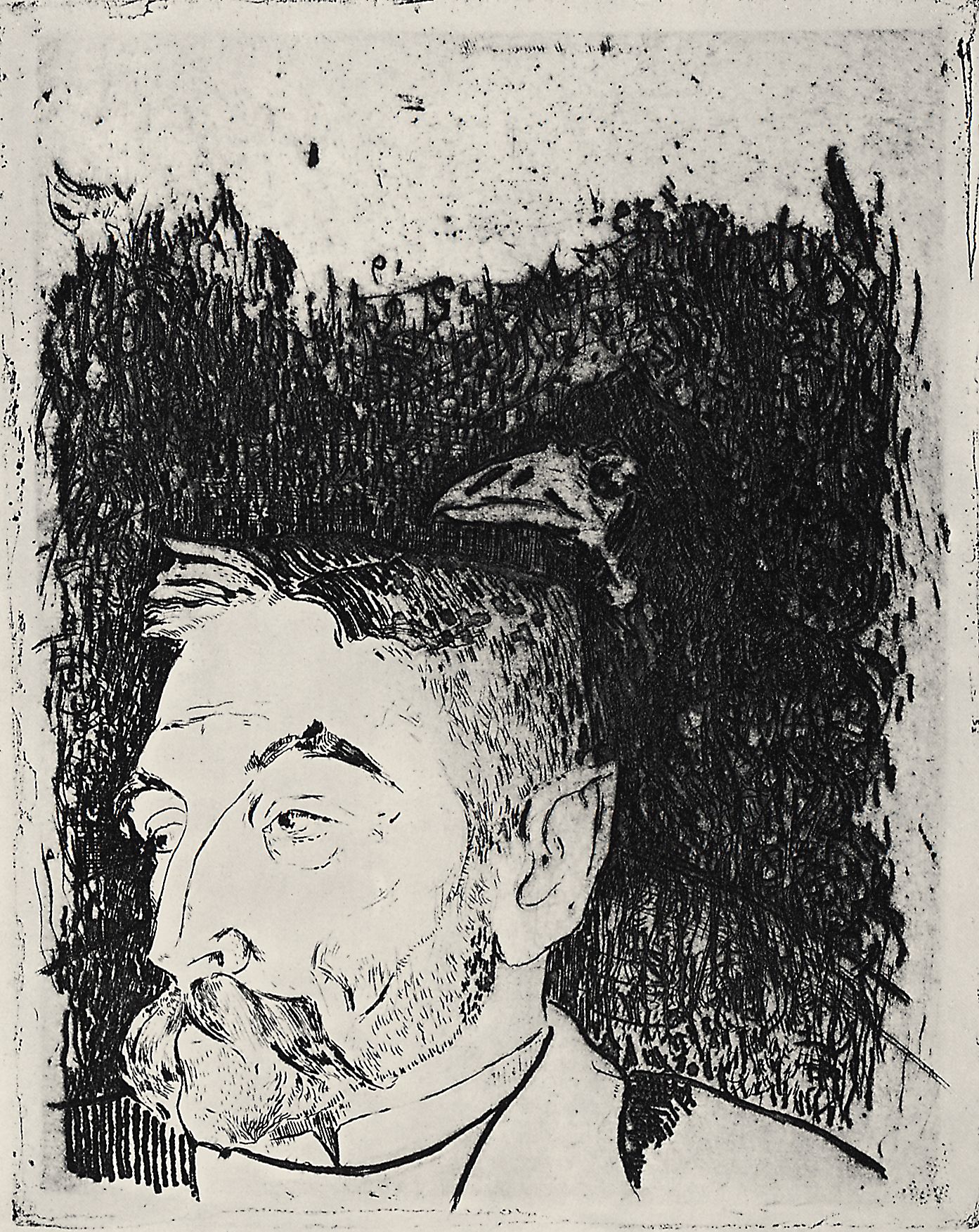Coldfront has a very nice post on Bill Knott, who passed away yesterday.
Here are a few small things from our archive.
Herschel Hoffmeyer, Dinosaur Enthusiast
 “I’ve been learning about and drawing dinosaurs since I was a kid,” explains Herschel Hoffmeyer, creator of the Apex Theropod Deck-Building Game, now on Kickstarter. “I even won a dinosaur art contest at a local library when I was very little. I was made to create these guys and bring them to life.”
“I’ve been learning about and drawing dinosaurs since I was a kid,” explains Herschel Hoffmeyer, creator of the Apex Theropod Deck-Building Game, now on Kickstarter. “I even won a dinosaur art contest at a local library when I was very little. I was made to create these guys and bring them to life.”
Apex Theropod looks like a dinosaur-lover’s nocturnal emission…and Herschel himself might be the biggest dino-enthusiast you’ll ever meet. “I have National Geographic’s The Ultimate Dinopedia and the super-sized book Dinosaurs by David James. I really love what the indie company Lukewarm Media has done with their game Primal Carnage,” he gushes, adding as an afterthought that he hasn’t actually been able to play said game yet.
According to his Kickstarter bio, Herschel is an 8-year Army veteran and Game Art and Design student at the Arts Institute International in Kansas City. Intrigued about how his Army life segued into his current saurian pursuits, I contacted Herschel for an interview. “Apex started as a simple prototype dinosaur-themed game used for an assignment in one of my game design classes at the Arts Institute International of Kansas City,” he explained. “After seeing my game concepts compared to others, I knew I had a knack for game design. Shortly after, I worked on many different prototype games under the same dinosaur theme, game goals, and playable class ideas.”
“The dinosaur theme was definitely the theme from the beginning, just because I thought it would be really fun to play.” As for the mechanics, they were inspired by the Legendary: A Marvel Deck-Building Game, published by Upper Deck Entertainment. Like other deck-building games, Legendary starts each player with a small deck of relatively weak cards (in this case, S.H.I.E.L.D. agents). However, over the course of the game, they can use these cards to “recruit” more powerful, iconic Marvel heroes into their deck, and the winner will be the player who builds the cleverest deck in the shortest time. This evolution from humble beginnings is a potently addictive formula, which explains the explosion of popularity deck-builders have experienced since they were popularized by Donald X. Vaccarino’s Dominion in 2008. Herschel isn’t naive to the economics of the situation: one reason he selected the deck-building format is that, since the bulk of their contents are composed of duplicate cards, deck-builders are relatively inexpensive to manufacture.
 This evolutionary gameplay is also the perfect complement to the theme of becoming the world’s top saurian predator. Herschel explains, “Most of the game’s mechanics are shaped around the theme, and three are really unique to the game. The first is the territory-based decks. With the environmental deck affecting those territories, that drives a sense of environment immersion. The second is that each player has a nest. The nest is separate from your playing deck and unique to whatever dinosaur you’re playing as. In the nest, you hatch cards that consist of just your dinosaur, and you also bring any prey hunted back to your nest to eat later. The third unique mechanic is the unforgiving boss battles. To dominate each territory, you have to fight off the other competing apex predator of that territory, and that is the boss. In a 5-player game, you have eight total bosses, and in a single-player game, you have three bosses and one ultimate boss.”
This evolutionary gameplay is also the perfect complement to the theme of becoming the world’s top saurian predator. Herschel explains, “Most of the game’s mechanics are shaped around the theme, and three are really unique to the game. The first is the territory-based decks. With the environmental deck affecting those territories, that drives a sense of environment immersion. The second is that each player has a nest. The nest is separate from your playing deck and unique to whatever dinosaur you’re playing as. In the nest, you hatch cards that consist of just your dinosaur, and you also bring any prey hunted back to your nest to eat later. The third unique mechanic is the unforgiving boss battles. To dominate each territory, you have to fight off the other competing apex predator of that territory, and that is the boss. In a 5-player game, you have eight total bosses, and in a single-player game, you have three bosses and one ultimate boss.”
On Coke Poetry

The well-respected, finically solvent and totally fun-to-chill-with advertising agency Droga 5 created these outdoor ads for the Coca-Cola Company, which recently appeared on the streets of New York City. They have a poetic quality, seeming to evoke certain characters and a unique Manhattan headspace. Longer than most written ads, and with an obvious, weighted subtext, they speak in a slippery psedo-literary voice.
Too Animal, Not Enough Machine
 Too Animal, Not Enough Machine: Have You Seen Gretel?
Too Animal, Not Enough Machine: Have You Seen Gretel?
Christine Jessica Margaret Reilly
Sundress Publications, July 2013
46 pages / $10.00 buy from Sundress Publications
Rating: 8.0
Christine Jessica Margaret Reilly’s collection Too Much Animal, Not Enough Machine: Have You Seen Gretel re-imagines the Grimm’s Tale of Hansel and Gretel alongside other mythological characters in new, haunting, and evocative ways. I’m always intrigued by the recasting of myths in contemporary landscapes, as many of our myths are fraught with monsters and madness that intend to expose the horrifyingly hideous rather than teach valuable life lessons. Reilly places Hansel and Gretel in today’s New York City, and her retelling with this backdrop prove itself skillful, chilling, and revitalizing.
While these poems exhibit undeniable darkness, they also weave in humor and highlight problematic societal constructs for children coming of age. In “Gretel Notices the Whale is a Witch or Gretel Notices the Whale Has a Kitchen that Has Not Been Remodeled Since the 70’s,” Reilly outlines a stark critique of gender constructs and the notion of fairy tales serving as moral cautionary tales.
“Gretel smells wolf in the Whale’s hair as she counts the days till she’s free
on her fingers. On the fridge there are magnets of the children who
died of too much fun the Whale explains. But Gretel’s no fool.
Things go down like a pianissimo in her, her body feels too
animal and not enough machine, her throat flaking off
and the room is a fluted boat, a vague sheet
being quilted, seams waning inward like
ribs, but Eat up you’re a growing
girl the whale says with
spiced breath. It’s a
free f(or)all.”
March 11th, 2014 / 10:09 am
Poem by my friends Bela and Katya
Standing Poem
I take my job really seriously.
My job is standing:
Your job is being. Your job is not being naked.
My job is not standing for something but rather simply standing.
Standing for nothing? I don’t stand for anything…I won’t stand for just anything. I’ll stand for $8.75 an hour.
I don’t stand for that much else otherwise, but I can stand $8.75 an hour. I can’t stand for any less, but I could stand for more.
Oh, this is stand up.
I am standing up for my right to get paid a minimum hourly wage for standing up.
I stand for at least the minimum — at most, I stand for 8 hours. I can stand on my own two feet, but only if I am paid to be standing. Otherwise, I will sit.
I don’t stand for freedom; I can stand for minimum wage.
I don’t stand for free dumbdumb. I stand for: a living.
A high standard of living?
I’m pretty short so not that high a standard, but some take me as their standard.
My standing is standard.
I will take $8.75 sitting down, but I will take it standing up also. When I can’t stand anymore they won’t pay me for standing any more. I will keep standing as long as I can stand to keep standing.
Get up, Stand up. That’s a standard workday. You can think on your feet, but you don’t have to. Understanding standing plays a big part in the job of standing: you must understand that your job is standing to stand for a job.
It’s taken a long time to get over sitting, but I’m finally beginning to understand.
by Bela Shayevich and Katya Tepper
*Bela also wanted to make sure I let you know about her upcoming book tour with Ainsley Morse. They translated Vsevolod Nekrasov’s collected poems together. Go.
Kaleidoscopic Omniscience by Will Alexander
 Kaleidoscopic Omniscience
Kaleidoscopic Omniscience
by Will Alexander
Skylight Press, 2013
274 pages / $21.99 Buy from Amazon or Skylight Press
What is in essence a collected early works Kaleidoscopic Omniscience gathers together Will Alexander’s early collections Asia & Haiti and The Stratospheric Canticles along with a long-promised but never published collection of shorter poems Impulse & Nothingness.
Vermillion shades of astral haunts abound as Alexander takes his readers through a psychedelic romp that leaves the consciousness reeling. There’s nothing usual about Alexander’s visionary take on history: the contemporary, the ancient, and the yet-to-be-possible-yet-possibly-not all come together simultaneously happening in the immediate now of his poems. Welcome to the sci-fi gothic splendor that is Alexander’s forte.
This is news from the beyond gathered by a shamanic visionary. Spun from out his psycho-imaginative journeys through previously unheard realms of existence. All grounded within his particular chthonic as well as vatic orders. He’s listening to frequencies to which few others are privy. (Too few others.) The messages conveyed by his poems are imbedded beneath soaring tonalities and scattered throughout lines with cryptic zeal.
Both “Asia” & “Haiti” are epic in scope. The ghosts of silenced communities spanning a global axis of oppression and denied freedom are given voice. The poems from beginning to end are one long address.
the once green wings of magical Tibet
accused by the Maoists
by the exterior flames of ideology & assault”
(“Asia”)
And
with a sun of splinters spewing from our heart
from our thorax burning with intestinal moray explosion
we
the Africa of Songhai & Mali
we
of original reptile wisdom
we
the first gatherers of wool
through sun
through apertures spinning
in a ruptured lightning gorge”
(“Haiti”)
The spirits of “Asia” announce “we’ve emerged / with our murmurs” carrying their stories into the public address of the poem.
the old fiery Lamas from the ocean
from the great green thrones of infinity”
March 10th, 2014 / 11:00 am
The Tooth Fairy by Clifford Chase
 The Tooth Fairy: Parents, Lovers, and Other Wayward Deities (A Memoir)
The Tooth Fairy: Parents, Lovers, and Other Wayward Deities (A Memoir)
by Clifford Chase
The Overlook Press, 2014
256 pages / $24.95 Buy from Amazon
Clifford Chase’s The Tooth Fairy begins with an epigraph, a line from a James Schuyler poem: “Out there/ a bird is building a nest out of torn up letters.” And this is Chase’s task in The Tooth Fairy, to weave a home from fragments of thoughts, memories, journals, dreams, and song lyrics, each ribbon and twig twisted with the other ribbons and twigs, until the strands form dense architecture, a story that holds one close.
At first, it seemed The Tooth Fairy would be an exhausting read. In the first chapter, an essay partly about the extraction of molar #30 from the author’s mouth, each of the fragments—which meditate on everything from blood oranges to antidepressants to sexual confusion—are, with few exceptions, a single sentence long. I’m a reader with an affinity for books made of fragments—I adore Barthe’s A Lover’s Discourse, Maggie Nelson’s Bluets, Wayne Koestenbaum’s Humiliation—but I wondered if I could keep up. The sentences leap swiftly from image to image, subject to subject, developing few of the connective strands. The images are at turns funny (a fat little dog with a plastic steak in its mouth), and at turns lyrical (clouds are “golden cloth with a purple sheen”). My mind felt a little jet-lagged. Chase was building this nest from such small twigs. But the warp and weft of the first chapter continued into the second, and the nest began to grow.
Each chapter considers a different time in the author’s life: a trip to Egypt with his partner John, a period of sexual confusion in college and afterwards, the deaths of his parents, a strange luggage mix-up. And each chapter has its own narrative arc, a central focus for meditation. There are strands, too, that connect each chapter to the next: Chase worries, suffers guilt, attempts to be a good son, partner, and brother, loses family members, loses part of his city, loses his sense of himself, loses love. He gains things, too—understanding, occasional connection. The book is full of emotional punches.
The Tooth Fairy invites one to seek patterns, and some of the fragments can be sorted into categories, one of which could be labeled “meta-fragments.” In these, Chase often considers or directs the reader about how the white space between fragments is working. In one instance, Chase writes that the white space represents “the gap between the part of [himself] that was happy with John and the part of [him] that wasn’t.” In the final chapter of the book, “Ken,” Chase reconsiders his brother, who died of AIDS in the late 1980s and whose death is the subject of Chase’s earlier book The Hurry-Up Song. In The Tooth Fairy, Chase has acquired Ken’s journal, and uses Ken’s writing and interviews with Ken’s friends to gain a multifaceted understanding of his brother. In this chapter, Chase tells us that the white space represents “several months in 2009 and 2010 of trying to absorb and understand [Ken’s] suffering.” Here, the gaps between fragments represent time and thought and sorting. In another chapter, Chase tells us that he assembles these “simple, factual sentences” in an attempt to “make the past seem almost comprehensible—not normal exactly, but closer to it—that is, an objective story I can view without shame.” This proclamation is followed by three such sentences, each of which speaks simply and literally, and also hints at a narrative iceberg sleeping beneath the surface:
“Superman was a turn-on.
The basement used to flood regularly.
The pipes froze.”
In all of the white spaces, the reader (and maybe, too, the writer) builds a narrative while also accepting that there is no perfect, comprehensible narrative, no perfect answers to Chase’s questions. Each sentence stands like a tooth in a mouth, perfect on its own—an independent unit with root, dentin, and enamel—yet rooted and most functional alongside the others.
March 10th, 2014 / 11:00 am
I Am Heavy Bored

It’s amazing how many times I’ve received this email, usually from a sane, diligent, intelligent and widely-published poet. Have your received it too? Have you done it?
I’m totes pro this sort of thing, cuz, whatever, it’s sweethearted and anyway I’m against more important things like reality TV, but when I first received it (from Mike Young—I told him it was going down on his permanent record), I thought for a minute about what poem I would send.
Then I realized if I did this, I could potentially receive a poem from ~20 people.
Who started this?
Some friends started a collective, constructive, and hopefully uplifting exchange, a form of email art exchange. It’s a one-time thing and we hope you will participate. We have picked those we think would be faithful, and make it fun. Please take just a few minutes to send an encouraging quote or verse to the person whose name is in position 1 below (even if you don’t know him or her). It should be a favorite text verse/poem/meditation/recipe that has lifted you when you were experiencing challenging times. Don’t agonize over it–it is one you reach for when you need it or the one that you always turn to.
1)
2)After you’ve sent the short poem/verse/meditation/quote/etc. to the person in position 1, and only that person, copy this letter into a new email, move my name to position 1. and put your name in position 2. Only my name and your name should show when you email. Send to ~20 friends BCC (blind copy). If you cannot do this in five days, let us know so it will be fair to those participating. It’s fun to see where they come from. Seldom does anyone drop out because we all need new ideas and inspiration. The turnaround is fast, as there are only two names on the list, and you only have to do it once.
Concurrent Events: There is no money
I hate when people announce a series. Usually when I announce a series, it just doesn’t happen. Like talking about something you’re writing, it makes it hard to finish, because talking about it makes it exist a little and that means you can move on. I prefer to move on. But I see no way around it: this is the first in a series of Concurrent Events. Hold on to yr butts.
At the crash of a Bank, vague, mediocre, gray.
Currency, that terrible precision instrument, clean to the conscience, loses any meaning.
Mira Corpora by Jeff Jackson
 Mira Corpora
Mira Corpora
by Jeff Jackson
Two Dollar Radio
182 pages / $16 Buy from Amazon or Two Dollar Radio
To some, writing is a ritualistic act, the only anchor that steadies the self with processed meaning in an otherwise meaningless life, a life that threatens to carry a person away with it into excessive uselessness. It’s not actually that dramatic, but with writing, getting carried away with emotions finally given freedom—emotions that usually lie beneath layers of all sorts of psychological weights—is common, at least in the earlier stages. There’s been a trend with newer literature to explore a muffled numbness, to keep the storyteller detached from his own emotions and the childhood that generated those vulnerable feelings, which easily fell prey to the machinated contradictions of the world. This numbness is somewhat helpful for readers to connect to a first person narrator fluidly and without judgment—so that the reader can slip into generated feelings, assume them instead of flatly being told about them from the narrator. At the same time, the imagination required for good storytelling can’t function to its fullest without a sense of childlike playfulness to accompany the forced numbness. The balancing act the constructor of a bildungsroman needs to walk has therefore become more burdensome than most other fiction writing, especially in this age when the form’s already been nearly exhausted and left uninteresting.
Mira Corpora, Jeff Jackson’s first novel, is a bildungsroman placed in a familiar alienated age. It’s an emotional pseudo-biographical account of the author’s past, one that keeps the real life experienced roots beneath the surface and allows a lusciously imagined yet just barely realistic sequence of events to flourish instead as the account. Before beginning the novel, you are made aware by an author’s note that this story is inspired by childhood journals. The way Jackson revisits childhood winds up morphing memory into an open and abstractable form, one that when presented to a reader who questions the validity or accuracy of this recounting can nonetheless re-experience the confusion of the original moment. Importance is placed on generating a succession of emotions, so that through the narrator we can understand a fear that isn’t mature enough to recognize itself. The earlier years of the novel bring an awareness to the animalistic nature of humanity, recalling a little bit of Burroughs’s The Wild Boys, and then flows into distinct fragments that take place later in the character’s development.
The story is also one of recognizing ones self as a writer through a few metaphorical devices. In the opening to the first section he describes the sacrifice of his body to be able to write. Later on an oracle gives him a blank sheet of paper, which according to everyone else surrounding him won’t bode well. The message seems to be that he is damned to be a writer. The first artistic energy he’s drawn to is a singer by the name of Kin Mersey, who gets mythologized to no end by his group of friends. They find him later, unrecognizable like Syd Barret in his later years, and for Jackson (the character) it’s too much to handle and he bolts away. His friends, however, are too wound up in their ideals and projections that they can’t help but be overjoyed at seeing this figure they’ve worshipped for so long. Seeing the loss of creative vitality, the reality of something instead of the assumed transcendent nature of it is unbearable for Jackson. This scenario made me question whether it’s worse to realize your state of being washed up or to continue on in ignorance of being sapped of a divine aura after once having it, or if it matters either way.
The following fragment of events deals with Jackson being abducted and drugged by an ill-intentioned German man named Gert-Jan, who comes across like a symbolic Beckett character. The thing about Jeff Jackson’s writing that is most striking, besides the originality that’s received so many high-praising blurbs, is his ability to make characters, events, and forms that intersect at potent avenues of meaning. Readers can use these to fill in numerous metaphors. The description and action is just sparse enough to allow one his or her own input, and just detailed enough to make them feel nearly real. With the Gert-Jan sequence, one can fill in this larger than life character with nearly any conniving and manipulating institution in society. The evil underhanded aspects don’t exist on the surface, but only in intuition. “Gert-Jan’s persuasions are more effective the longer he holds your attention.” The idea of ‘not biting the hand that feeds you’ gets called into question when Jackson plots to escape Gert-Jan’s all encompassing grasp.
Overall the coming of age story doesn’t track any sense of progress. The narrator feels the same in the early years as he does by the end of the book. Nothing leads to anything else, as if all the outside experiences are just one big toxic wash. The approach feels like the inaction of a Tao Lin novel, and is narrated with a similar approach, but instead of minimal realism it’s told with a violent sense of survival imbedded within it; an undercurrent of energy rushes through the restrained prose. Traces of Dennis Cooper, and the aforementioned Beckett and Burroughs, are there too. But even with these elements, a larger portion of it is an original approach to storytelling, one that breathes new and exciting life into the trends of alienated numbness pervading current novels.
March 7th, 2014 / 11:00 am

